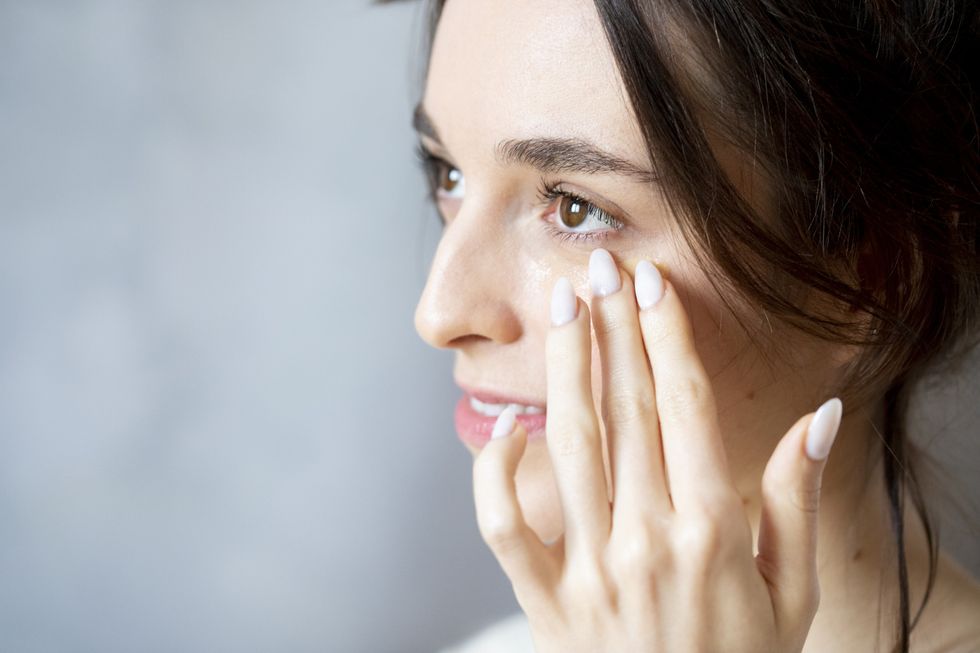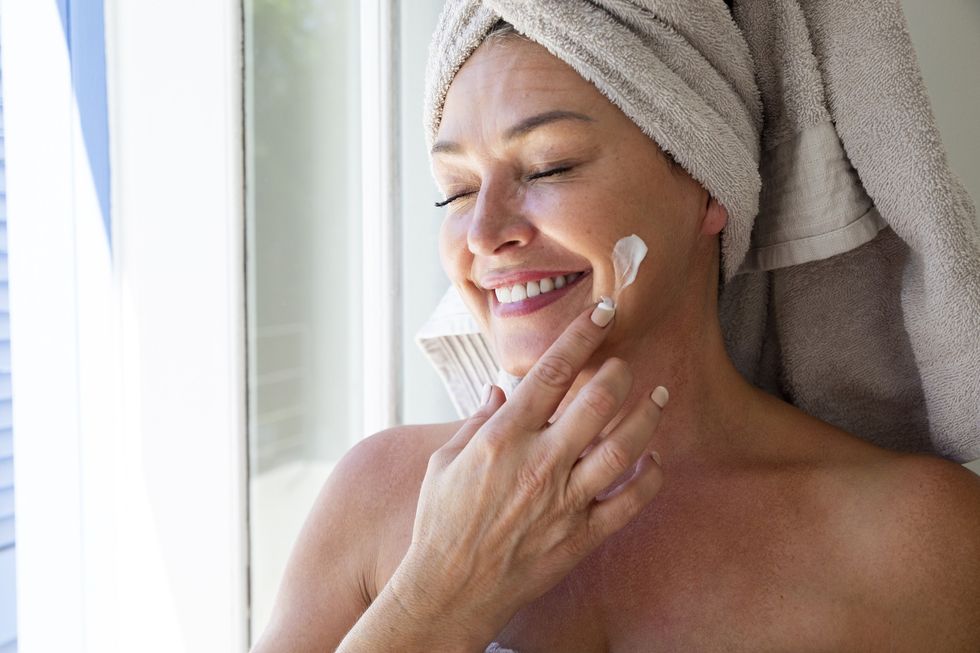How to look younger: 'Women over 50 must wear a daily cream to protect fragile skin,' says dermatologist

GB News is speaking to experts about the best measures to achieve your beauty goals. This week, a dermatologist and a pharmacist divulged their top skin care tips for younger-looking skin in middle age and beyond
Don't Miss
Most Read
Latest
Skin ageing is inevitable as we get older but with the right products, the process can be slower and less intense.
GB News spoke exclusively to two experts - a dermatologist and a pharmacist - about the best skin care tips for a "younger-looking" complexion.
Board-certified dermatologist Rina Weimann (MD) shared her strategies for "refreshed, youthful and healthy" skin at home. She advised investing in a good eye cream to combat ageing in a "fragile" part of the face.
She told GB News: "With age, our skin becomes increasingly dry, resulting in a 'crepey' appearance, defined wrinkles and facial hallowing.

'Eye creams are essential in skin hydration and plumping while masking under-eye darkness'
|GETTY IMAGES
"Skin thinning is most apparent for many around the eyes in this age group where the skin is the thinnest and most fragile.
"Eye creams are essential in skin hydration and plumping in this delicate area while masking under-eye darkness."
Dr Weimann's personal favourite is a La Roche-Posay product which she says "promotes firmness and hydration".
She said: "The ingredients are safe and above all else provide optimum hydration with minimal irritation, both of which are favourites among my skin of colour patients with acne-prone skin."
The Redermic Retinol Eye Cream for Sensitive Skin promises to reduce the appearance of deep wrinkles, restore the skin's firmness and reduce established signs of ageing like dark circles. It also promises to make the eye contour feel smoothed and more radiant.
La Roche-Posay stated: "In case of contact with the eyes, rinse immediately and thoroughly."
Offering further guidance on younger-looking skin after 50, Dr Weimann said: "Treatment of wrinkles in addition to prevention is of the utmost importance in this age group.
"Loss of hydration and elasticity of the skin with age can lead to thinning of the skin, hollowing and defined static, stubborn wrinkles.
"Skin hydration and restoring the protective skin barrier are best achieved with ingredients such as Vitamin E, oils and hyaluronic acid."
GB News also spoke to Dr Janis Kosma-Covey, Doctor of Pharmacy and owner of skin care line Kosmotology, about the best skin care tips for youthful skin. She offered specific advice on two essential products: sunscreen and moisturiser.
The expert said: "Wearing SPF 50+ is crucial for maintaining healthy, youthful skin. SPF protects against harmful UVA and UVB rays, which can cause premature ageing and increase the risk of skin cancer."
She advised opting for a sunscreen that uses minerals such as zinc oxide or titanium dioxide, explaining that mineral sunscreens reflect the sun's rays, while chemical sunscreens need to absorb them to be effective, and may be more irritating to sensitive skin.
The expert continued: "By incorporating SPF as part of your daily skin care routine, you will significantly reduce these risks, ensuring your skin remains healthy and youthful appearance."
LATEST DEVELOPMENTS

'Wearing SPF 50+ is crucial for maintaining healthy, youthful skin'
|GETTY IMAGES
Skin care experts at CeraVe seconded this: "Mineral sunscreens are generally gentler on the skin and may be the preferred choice for those with sensitive skin, dry skin and eczema."
Chemical sunscreens are also effective though, and are often chosen for their "versatility and lightweight texture". A dermatologist will be able to offer guidance to those looking to choose the best sunscreen for them.
Offering her advice on selecting a moisturiser, the pharmacist recommended prioritising ones that contain antioxidants such as vitamins C and E, as these "protect your skin from environmental damage and also support collagen production". Collagen production is essential because this essential protein depletes over the years.
Harvard Medical School stated: "Collagen is a major structural protein in our tissues. It's found in skin, hair, nails, tendons, cartilage, and bones. Collagen works with other substances, such as hyaluronic acid and elastin, to maintain skin elasticity, volume, and moisture. It also helps make up proteins such as keratin that form skin, hair, and nails.
"Our bodies naturally produce collagen using the amino acids from protein-rich or collagen-rich foods like bone broth, meat, and fish. But ageing, sun damage, smoking, and alcohol consumption all decrease collagen production."
If you have any skin care concerns, always consult your doctor or dermatologist. Medical professionals will also be able to issue guidance on which products could be most suitable and beneficial for you.
GB News also took a deep dive into skin care and sun damage, with one doctor recommending three products to brighten skin, reduce wrinkles and improve texture.











